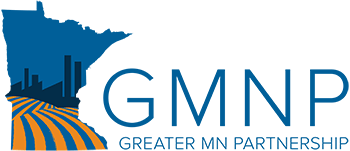New housing package introduced
On Wednesday, lawmakers held a press conference to unveil a package of housing bills they're calling "Say Yes to Housing." These separate but interrelated bills are intended to tackle different perceived issues with zoning in Minnesota cities. There are also two separate bills aimed at eliminating parking minimums and "luxury" design requirements. Although the content of the bills is divided differently, the package is not significantly different from the preview shared with GMNP members earlier this session or the "missing middle" bills that circulated in 2024. I met with the bill authors earlier today and they indicated that there would be some significant changes coming to S.F. 2231 (Boldon) to remove some of the prescriptive setback and floor ratio requirements, with the goal of increasing density remaining. I will share that new language when it is available for additional feedback.
The three main bills are as follows:
- S.F. 2229 (Port)/H.F. 1987 (Igo): The "Minnesota Starter Home Act"
- S.F. 2231 (Boldon): The "More Homes, Right Places Act" requiring creation of mixed-use housing zones
- S.F. 2286 (Clark): The "Transforming Main Street Act" - housing in commercial districts
Common features of each bill:
- Changes to comprehensive plan regulations. These are primarily aimed at the metropolitan area but would apply to any city with a comprehensive plan.
- Comprehensive plans are not required for changes to municipal zoning codes to reflect these new municipal zoning controls.
- Comprehensive plans may be amended by a simple majority of the governing body.
- Minimum parking requirements. Cities must not impose a minimum number of parking spaces including on-street or off-street parking.
- Design requirements. A municipality must not impose requirements for construction materials or methods, including architectural elements, building egress, durability, energy efficiency, or light access requirements.
- Administrative approval process. These bills require that cities establish an administrative approval process, but the requirements vary by bill.
- Application of other state laws. Each bill does allow cities to impose restrictions related to general health, safety, and welfare and a few other state laws:
- These developments must still comply with city requirements, including adequacy of existing public infrastructure.
- These developments are also subject to state or federal law that protects floodplains, areas of critical or historical concern, and other environmental restrictions.
- These bills also require that any standards placed on housing must relate directly to protecting public health, safety, and general welfare.
For more details on the individual bills, click here.
If you have feedback on these bills, please share it with me and with your elected officials. The GMNP is very supportive of proposals at the legislature that support and encourage much-needed housing development, but we are opposed to one-size-fits-all zoning and land use mandates.
Contact:
info@gmnp.org
(651) 259-1908
